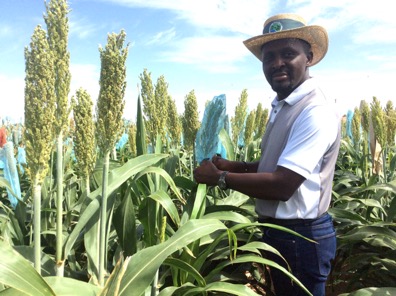| OBJECTIVE 1: Subobjective1A |

|

Research Plant Physiologist
Plant Stress and Germplasm Development Research
Yves.Emendack@ars.usda.gov
Phone: (806) 749-5560
Fax: (806) 723-5272

Research Geneticist (Plants)
Plant Stress and Germplasm Development Research
Chad.Hayes@ars.usda.gov
Phone: (806) 749-5560 ext. 5219
Fax: (806) 723-5272
OBJECTIVE 1: Discover and characterize superior traits from natural collections and a mutant population to enhance abiotic stress tolerance, yield potential, and stability of grain, forage, and bioenergy sorghum.
Subobjective1A: Identify new sources of thermal tolerance within diverse Ethiopian germplasm (Emendack, Hayes)
Rationale: Cold tolerance is a trait highly recommended by sorghum growers. It allows sorghum to exploit the soil moisture in early season, enables a longer growing period to produce higher biomass, and early canopy development for weed control. Recent problems with the sugarcane aphid (SCA) in grain sorghum has also influenced producers to plant earlier in the growing season to avoid major SCA infestations later in the season. There is a need in the sorghum industry for hybrids that germinate and grow under cooler soil temperatures. The planned research will identify both cold germination and vigor traits within Ethiopian germplasm.
Goal: Identify sources of early season cold tolerance among Ethiopian accessions
Research Approach:
Selection of germplasm. A collection of 352 Ethiopian sorghum accessions previously studied will be used for initial cold tolerant screening. The Ethiopian collection is a diverse and rich germplasm resource. Preliminary results indicate that significant variation exists for cold tolerance in the Ethiopian collection screening. The Ethiopian accessions will most likely be photoperiod sensitive and, therefore, will need to be grown in a short day environment (winter nursery) for seed increase. A single seed source is also extremely valuable because variations in seed quality can greatly influence agronomic results, especially seed germination and early plant vigor.
